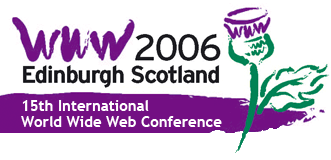Celia Boyer

Celia Boyer is the executive director of the Health On the Net Foundation. The foundation is an innovative approach to helping people combat disease and live healthy lives by offering practical guidance to certified medical information and support on the Internet. She first joined the Geneva-based NGO as head of web services when it was established in 1996.
Celia's main research areas cover new information technologies as applied to medicine and health. She is a specialist in information quality issues on the Web and in the development and application of tools to search and select telehealth resources on the Internet. She participates as an expert to many International medical conference and working groups.
Celia was the scientific and administrative coordinator of the European Union’s two-year WRAPIN project (World Reliable Online Advice for Patients and Individuals). She co-authored Consumer Informatics: Applications and Strategies for Cyber Health Care, which went on to win the 2005 book of the year award from HIMSS (Healthcare Information and Management Systems Society. She co-guest edited the International Journal of Medical Informatics special issue entitled Internet and Health for All, which was published in January of this year.
Celia received her MSc in applied physics in 1993 from the University of Luminy in Marseilles, France and has a computer science engineering degree from the Ecole Polytechnique Fédérale in Lausanne, Switzerland.
Synopsis
Quality issues in e-Health
Shark cartilage to cure cancer! With four billion pages devoted to health information on the Internet, no wonder to find this kind of news. But there is a reliable mean to verify health and medical information: The Health On the Net Foundation (HON).
From the outset, it was recognized that the widespread availability of scientific information online would introduce new trust, security and legal issues. Lacking any central authority, responsible online publishers have embraced voluntary and self-regulatory schemes. Internet users are largely on their own to devise strategies and criteria to make sense of an undisciplined online world.
Freedom of expression, a great achievement of contemporary society, has been leveraged by Web publishers with the result that false, misleading or commercially-biased information competes online with unassailable scientific fact. Marketing specialists and visual designers can endow nearly any web site with credibility, leaving the sometimes bland output of medical researchers to seek an audience.
Fundamental differences between Internet publishing and print media require a novel approach. Electronic documents can be changed at any time and their reliability is therefore difficult to certify. The unprecedented volume of online scientific documents challenges the traditional review process, and Internet self-publishing means that peer-review can be easily circumvented by anyone so motivated.
Standards such as the HONcode1, an approach to information quality and credibility, can infer reliability from the information production process itself, and content-based quality criteria use linguistic analysis to support automated or semi-automated systems.
HON Foundation is a non-governmental organisation offering to Internet users reliable and trustworthy information through more than 5,000 accredited medical and health web sites according to the HON Code of Conduct (HONcode).
|

